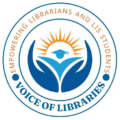Curriculum and Syllabus
In Pakistan, the Higher Education Commission (HEC) plays a pivotal role in guiding and standardizing the curriculum for various degree programs offered by universities and degree-awarding institutions. For Library and Information Science (LIS) students and professionals, understanding both the HEC's framework and the specific syllabi developed by individual universities is crucial for academic and professional development. Here's a breakdown of the curriculum and syllabus for LIS in Pakistan, considering HEC's involvement and university-level implementation:
Curriculum vs. Syllabus: A Clarification
Before delving into the specifics, it’s important to differentiate between curriculum and syllabus:
- Curriculum: This is a broader, overarching plan for an entire educational program or course of study. It defines the overall learning objectives, the philosophy of the program, the sequence of courses, the types of skills to be developed, and the general framework for assessment. The HEC primarily focuses on developing and revising national curricula to ensure quality and relevance across Pakistani universities.
- Syllabus: This is a more detailed document for a specific course within a curriculum. It outlines the topics to be covered, learning outcomes for that particular course, required readings, assignments, assessment methods (e.g., exams, projects, presentations), and grading policies. While universities follow the HEC’s curriculum guidelines, individual departments and instructors develop the detailed syllabi for their courses.
University-Level LIS Curricula and Syllabus
Universities in Pakistan, while adhering to HEC’s broad curriculum guidelines, design their specific LIS programs and individual course syllabi. This allows for some degree of specialization and responsiveness to local needs.
Common themes and areas typically covered in LIS curricula and syllabi in Pakistani universities include:
Core Areas:
- Foundations of LIS: Introduction to libraries, history of books and libraries, role of libraries in society, and the development of librarianship in Pakistan.
- Information Organization: Classification (e.g., Dewey Decimal Classification, Library of Congress Classification), cataloguing (e.g., AACR2, RDA), subject headings, and metadata.
- Information Resources: Types of information materials (printed, non-printed, digital), collection development and management, selection tools, acquisition, and weeding.
- Information Services: Reference services, circulation, user studies, information literacy, and developing responsive services.
- Library Management: Principles of library administration, planning library buildings, marketing of library services, budgeting, and human resource management.
- Information and Communication Technology (ICT) in Libraries: Introduction to computer hardware and software, library automation systems (Integrated Library Systems – ILS), digital libraries, web technologies, information retrieval systems, and big data in libraries.
- Research Methodology: Essential for both students and professionals to conduct research, analyze data, and contribute to LIS literature.
- Emerging Trends: Knowledge management, archives and records management, information architecture, and information entrepreneurship.
HEC's Role in LIS Curriculum Development
The HEC, through its National Curriculum Revision Committees (NCRCs), is responsible for periodic revisions of curricula across all disciplines, including LIS. The goal is to ensure that Pakistani higher education aligns with national priorities and international benchmarks. Key aspects of HEC’s involvement include:
- Standardization: HEC aims to bring uniformity and standardization to LIS education across the country, ensuring that graduates possess a consistent set of skills and knowledge.
- Quality Assurance: By providing minimum standards and guiding principles, HEC helps maintain and improve the quality of LIS education.
- Relevance: The curriculum is intended to be market-oriented and responsive to the evolving needs of the information profession, incorporating new trends and technologies.
- Framework for Degrees: HEC provides frameworks for various LIS degree programs, such as BS (Library and Information Sciences), MPhil, and PhD in Library and Information Science.
While HEC designs a standardized curriculum, its proper implementation by universities is a continuous challenge. Reviews are needed periodically (ideally every two to three years) to keep pace with rapid technological advancements and market demands in the LIS field.

Specialized/Elective Courses:
Universities often offer elective courses that allow students to specialize in areas like:
- Academic Librarianship
- Public Librarianship
- School/College Librarianship
- Special Librarianship (e.g., medical, industrial, scientific, agricultural)
- Digital Curation
- Information Systems Auditing
- Advanced topics in information technology
Professional Development for LIS Professionals:
Beyond formal degree programs, LIS professionals in Pakistan seek continuous professional development (CPD). While HEC offers general faculty development programs and training courses in areas like research methodology and communication skills, specific CPD programs for LIS professionals are also offered by universities and professional associations. These programs aim to:
- Update skills in emerging technologies and practices.
- Enhance research and analytical abilities.
- Improve management and leadership skills.
- Foster innovation and adapt to the changing information landscape.
In conclusion, the LIS curriculum in Pakistan, guided by HEC’s overarching framework and implemented through university-specific syllabi, aims to equip students and professionals with the necessary knowledge and skills to navigate the dynamic field of library and information science. Continuous review and adaptation are vital to ensure that LIS education remains relevant and produces competent professionals for the evolving information needs of society.
Curriculum
&
Syllabus
If you are looking for LIS syllabi and curricula on vol.com.pk (Voice of Libraries), you would need to:
- Visit the website: Go to
vol.com.pkin your web browser. - Navigate the site: Look for sections related to “Publications,” “Resources,” “Curriculum,” “Syllabus,” or “Academic Materials.”
- Search: Use the website’s internal search function if available.
- Click on links: If they have documents (like PDFs) available for download, there will be clickable links that your browser will handle for downloading.
Voice of Libraries (VOL) is a prominent platform for LIS professionals and academics in Pakistan, often publishing articles, news, and sometimes relevant documents. If they have shared LIS curricula or syllabi, they would typically be available as downloadable PDF files.
- Voice of Libraries (vol.com.pk)
- https://vol.com.pk/category/lis-curriculum-syllabus/
- Primary Tool + Students Guides + Curriculum and Syllabus

